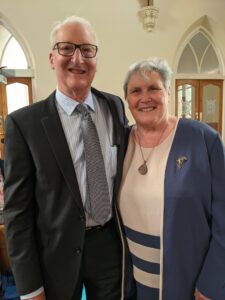On Sunday September 11th, 2022, the St John’s congregation celebrated its 150th anniversary (yes, the congregation was formed on September 8th, 1872). To praise God for His faithfulness and blessing upon us, a celebration service was held at which the PCV Moderator, Rev Peter Phillips, preached the message entitled ‘God’s Word for God’s World’ (the theme chosen by the Session for our anniversary year!)
Message
